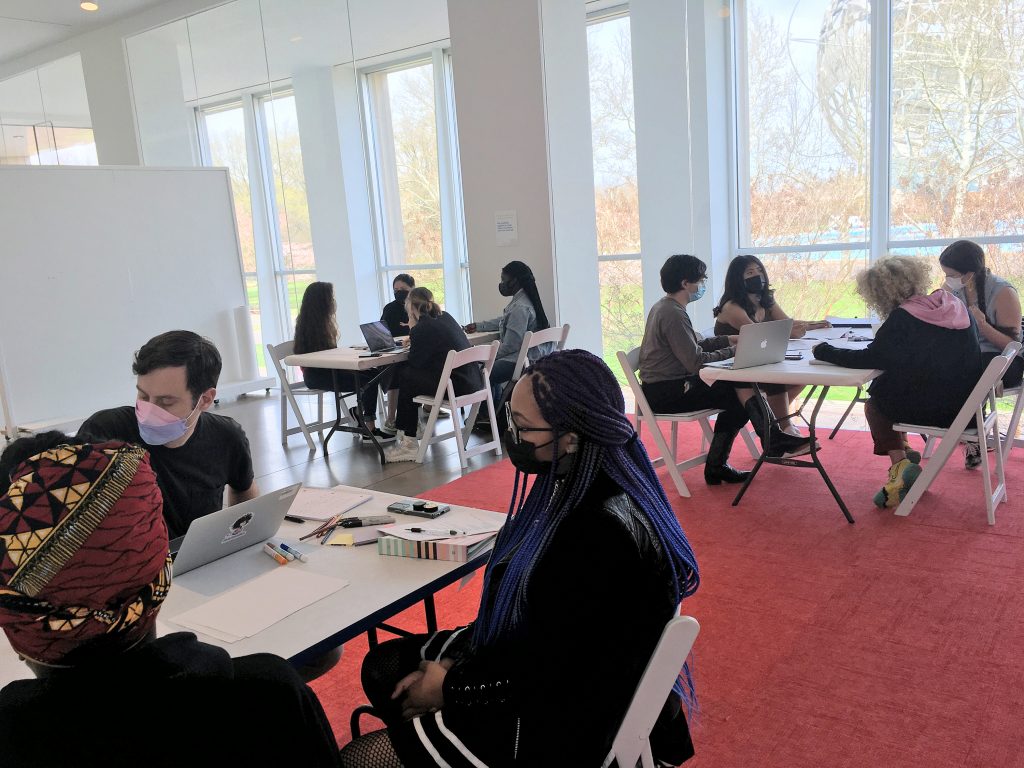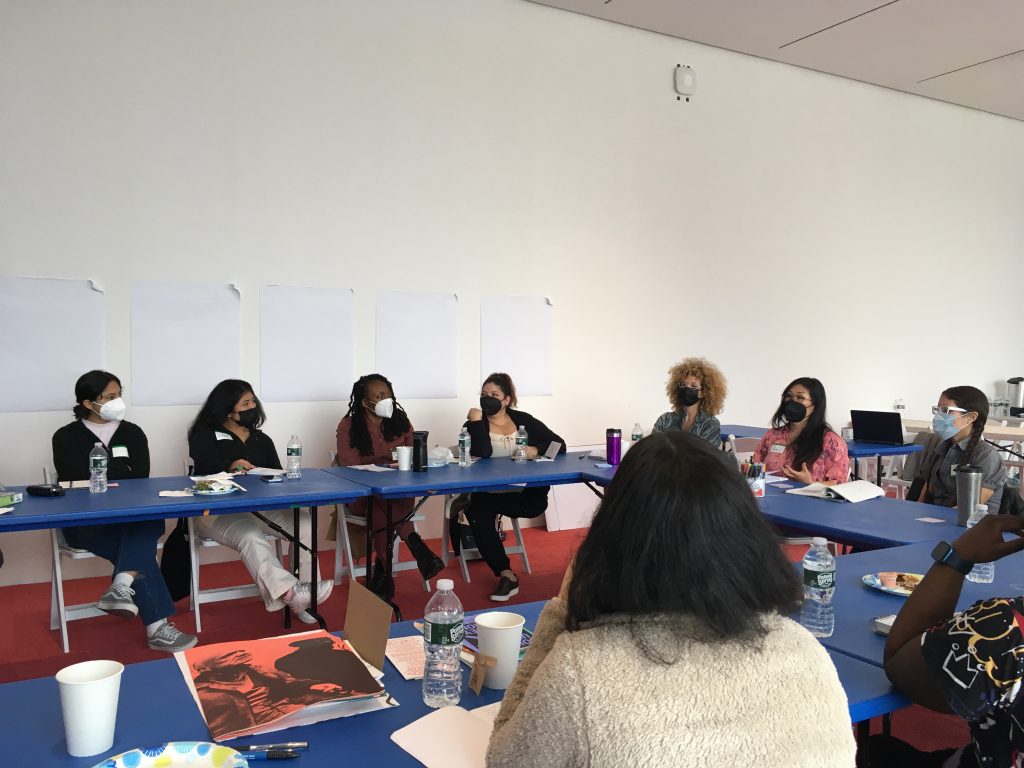On the Struggle for Justice in Education in New York City
What are we fighting for? How do we get there? What stands in our way?
July 1, 2022
On March 19 and April 16, the Queens Museum and Video School, a collective composed of Year of Uncertainty Artist-In-Residence Gabo Camnitzer, and curators Joey Lubitz and Candice Strongwater hosted an inter-generational and multi-racial working group that brought together leading parent, teacher, and student organizers from across New York City. Participants shared their lived experiences and perspectives and identified several key issues facing NYC public schools, and the ways that the system imposes a one-size fits all model, disembedded from the real needs of its students, families, and communities.

While honoring the work of past and present educational justice organizing, the group is working collectively toward a publication that will serve as an organizing tool in the struggle for justice within and beyond the NYC classroom. Through discussion and more intimate conversations, topics of urgency ranged from: abolishing police presence from schools; prioritizing community control and student-centered curriculum; celebrating labor organizing and student-teacher coalitions; addressing respectability politics and race relations; creating nuanced forums to unravel meritocracy, frameworks of competition, and the production of value; ending standardized testing; and increasing health and wellness resources.

Moreover, the working group explored crucial questions around education and political engagement (contesting the distinction between the political and the pedagogical) and reframing the power of schools within society–imagining what it would look like if things like housing justice or the abolition of prisons were also treated as education issues? Heeding the advice of the late bell hooks, the working group aimed “to root our imagination in our concrete reality while simultaneously imagining possibilities beyond that reality.”
Both of these sessions revolved around identifying and connecting the key issues (below), as well as the strategies and organizing needed and already underway to counteract them.
– ABOLITION as a school issue, and POLICE-FREE SCHOOLS
– PEDAGOGY as an AFFIRMATION OF LIFE AND COMMUNITY
– RADICAL LABOR REPRESENTATION and more resources for teachers, staff, students, and parents
– COMPETITION and STANDARDIZATION as symptoms of racism, ableism, and classism
– PRIVATIZATION and inequitable RESOURCE DISTRIBUTION
– Direct DEMOCRACY within education, and establishing COMMUNITY CONTROL of New York City public schools.

Image Description: A dry erase board covered in purple, uppercase text. The largest text at the top-center reads “Think, repair, share” followed by “NYC SCHOOLS”.
Where are we now?
The pandemic deeply exacerbated the crisis facing public education. It provided an alibi for technology corporations and philanthropic capitalists to further extract value from education. Those in power enable this technologization and platformization of schooling, while side-stepping the deeper structural problems within and beyond the education systems. But machines and contracts cannot solve these problems.
Early in the pandemic, the rhetoric of digital “access” fed a racist and classist proposition that in-person learning and physical classrooms were no longer necessary—a belief that not only jeopardized school funding, but centered the interests of private investors over teachers, students, and communities. Subsequently, the full-throttle return to in-person schooling in September of 2021 under the De Blasio administration continued to entrench calculated ableisms, while silencing the voice of student, teacher, and parent organizing. While the media narratives may have suggested people on the ground were fighting a narrow battle for masks, proper testing, and more accessible modes of participation for all, these are just the bare minimum for a “healthy” school. The struggle exceeds such demands, calling for an end to schools that reproduce the unequal status quo, for the establishment of community control, and the affirmation of the life and the imagination of this city so as to transform our world.
The continued creation of more charter schools, the ever-present cycles of under-funding, and the emphasis on increasing access to selective programs makes clear that public education faces an uphill battle for structural reform.
This moment presents an inflection point for education, defined by a sense of the imminent threats to education and bolstered by the realizations wrought by the experiences of the past two years.

These closed-door sessions were facilitated by the collective “video school,” composed of Queens Museum’s YoU artist-in-residence Gabo Camnitzer, and curators Joey Lubitz and Candice Strongwater. The publication will launch in fall 2022.
Participants included:
– Madyson Oneiya: Students Break the Silence
– Keisha Marksman: Students Break the Silence
– Jasmin Contreras: Queens Museum Teens Leadership Council
– Susan Salgado: Queens Museum Teens Leadership Council
– Marilena Marchetti: MORE Caucus
– Jia Lee: MORE Caucus
– Elizabeth Velazquez: NYCoRE
– Jenna Queenan: NYCoRE
– Tajh Sutton: Black Lives Matter at School NY, Parents For Responsive Equitable Safe Schools, Students Break the Silence, Community Education Council President in District 14
– Kaliris Salas-Ramirez: NYC public school parent and president for
– Community Education Council 4, in Manhattan, and a steering committee member for Parents for Responsive, Equitable, and Safe Schools (PRESS).
– Kimaada Le Gendre: Director of Education at Queens Museum
– Kyle Richardson: Graphic Designer and NYC public school graduate
Special thanks to Danny Corona, Kimaada Le Gendre, Catherine Grau, Hitomi Iwasaki, and Melisa Pucar.
Related Tags